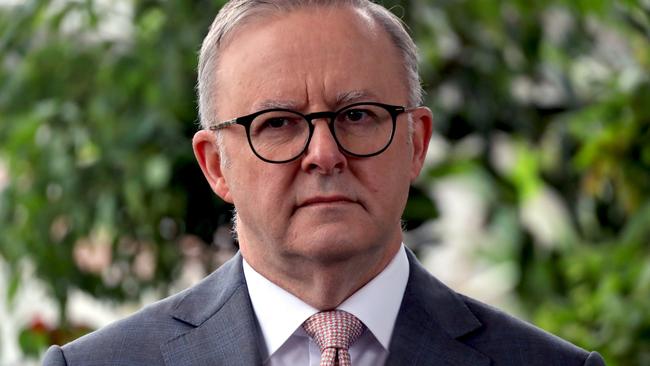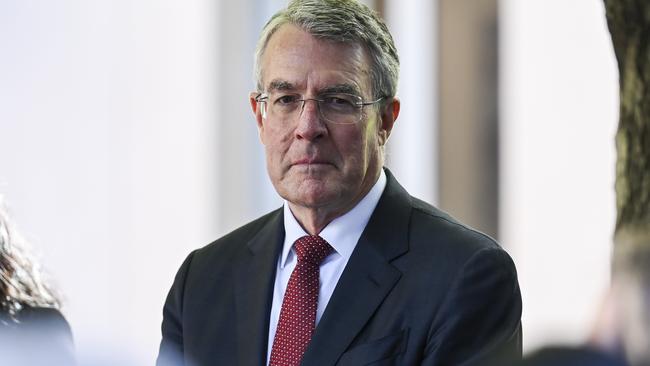Legal advice released for the Indigenous voice to parliament
Secret legal advice for the Indigenous voice to parliament, which Anthony Albanese previously brushed off calls to release, has now emerged.
National
Don't miss out on the headlines from National. Followed categories will be added to My News.
Australia’s solicitor-general has advised that the voice to parliament “will not fetter or impede the exercise of existing powers of Parliament” smashing the proposals’ critics, including Liberal leader Peter Dutton.
After weeks of calls to release the secret legal advice on what the proposal would mean for Australia’s system of government, the Attorney-General Mark Dreyfus has done just that.
But the calls by critics to release the advice may have backfired with the legal officer dumping on critics of the proposal.
“(It) would not impose any obligations upon the Executive Government to follow representations of the voice, or to consult with the Voice prior to developing any policy or making any decision,’’ the Solicitor-General’s advice states.
The Albanese Government had previously rejected the calls for transparency on the grounds that the government rarely releases its own legal advice.

The advice goes on to state that the voice’s function of making representations will not fetter or impede the exercise of the existing powers of the Parliament.
“Specifically: (It) would not prevent the Parliament from legislating until it receives a representation from the voice (which might never happen with respect to many proposed laws, given that the voice is not required to make representations on any particular matter, and that the voice will no doubt prioritise its resources by focusing on making representations on the matters it considers are of the greatest significance to Aboriginal and Torres Strait Islander peoples),’’ it states.
“Nor would it require the Parliament to consult with the voice before legislating. The text of proposed s 129 – which imposes no obligations of any kind upon the voice, the Parliament or the Executive Government – is incapable of supporting any such requirements.
“Members of the Parliament may give such consideration and weight to representations of the voice as they consider appropriate, and they will be accountable to their electorates for their decisions in that regard. The influence of the voice’s representations to the Parliament will be a matter to be determined by political considerations, rather than legal considerations.”

In a submission to the inquiry considering the voice, the Attorney-General Mark Dreyfus said the Solicitor-General’s advice had considered:
• the compatibility of proposed section 129 of the Constitution with Australia’s system of representative and responsible government established under the Constitution; and
• the power of the Parliament to legislate with respect to matters relating to the Aboriginal and Torres Strait Islander voice, including as to the legal effect of the voice’s representations on decisions by the Executive Government.
“The Solicitor-General’s opinion on these matters speaks for itself,’’ he said.
“It has always been the Government’s position that the Voice should be able to make representations to the Executive Government. Despite assertions to the contrary from the Leader of the Opposition, this has always been my personal view.
“It is self-evident that, in order to improve the laws and policies that affect Aboriginal and Torres Strait Islander peoples and improve outcomes, the voice must be able to make representations to the Parliament and the Executive Government.
“It is the Executive Government that makes policies, and develops proposed laws, about Aboriginal and Torres Strait Islander peoples. When the Parliament passes laws relating to Aboriginal and Torres Strait Islander peoples, it is the Executive Government that implements them.
“For those reasons, in addition to reviewing the Solicitor-General’s opinion and the evidence of the other eminent constitutional experts who have appeared before the Committee, I urge the Committee to consider the importance of the voice being able to make representations to the Executive Government.”
Mr Dreyfus said the voice was “an important reform and it is a modest reform – one that would complement the existing structures of our democratic system and enhance the normal functioning of government.”
More to come.
More Coverage
Originally published as Legal advice released for the Indigenous voice to parliament





